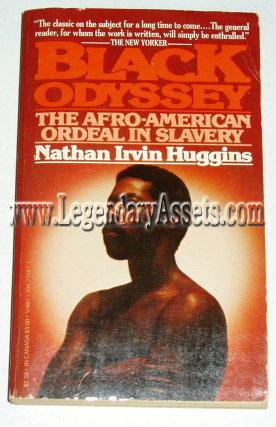
In the 1450s, when Europeans from the small corner of the globe least enmeshed in the institution first interacted with peoples of other continents, they created, in the Americas, the most dynamic, productive, and exploitative system of coerced labor in human history. This book examines these dramatic expansions and contractions of the institution of slavery and the impact of violence, economics, and civil society in the ebb and flow of slavery and antislavery during the last five centuries. 471 pages.
This book is a history of the rise and abolition of slavery in the Americas and covers such topics as the plantation revolution of the seventeenth century, the emergence of anti-slavery thought, and the contributions of such figures as Thomas Paine and Frederick Douglass. 498 pages.
Origins and Consolidation -- The Colonial Era 328 pages.
In late August 1619, a ship arrived in the British colony of Virginia bearing a cargo of twenty to thirty enslaved people from Africa. Their arrival led to the barbaric and unprecedented system of American chattel slavery that would last for the next 250 years. This is sometimes referred to as the country's original sin, but it is more than that: It is the source of so much that still defines the United States. The "1619 Project" issue reframed our understanding of American history by placing slavery and its continuing legacy at the center of our national narrative.

This classic work of scholarship and empathy tells the story of the self-creation of the African-American people. It assesses the full impact of the Middle Passage -- "the most traumatizing mass human migration in modern history" -- and of North American slavery both on the enslaved and on those who enslaved them. 250 pages.

No group of slaves anywhere, in any era, has left such prolific testimony to the horror of bondage as African-American slaves. Here are four of the most notable narratives: The Life of Olaudah Equiano; The History of Mary Prince; Narrative of the Life of Frederick Douglass; and Incidents in the Life of Slave Girl. 518 pages.
Tells the true story of one of the last-known survivors of the Atlantic slave trade--abducted from Africa on the last "Black Cargo" ship to arrive in the United States. In 1927, Zora Neale Hurston went to Plateau, Alabama, just outside Mobile, to interview eighty-six-year-old Cudjo Lewis. Of the millions of men, women, and children transported from Africa to America as slaves, Cudjo was then the only person alive to tell the story of this integral part of the nation's history. Hurston was there to record Cudjo's firsthand account of the raid that led to his capture and bondage fifty years after the Atlantic slave trade was outlawed in the United States. In 1931, Hurston returned to Plateau, the African-centric community three miles from Mobile founded by Cudjo and other former slaves from his ship. Spending more than three months there, she talked in depth with Cudjo about the details of his life.
| All Content CC-BY. |